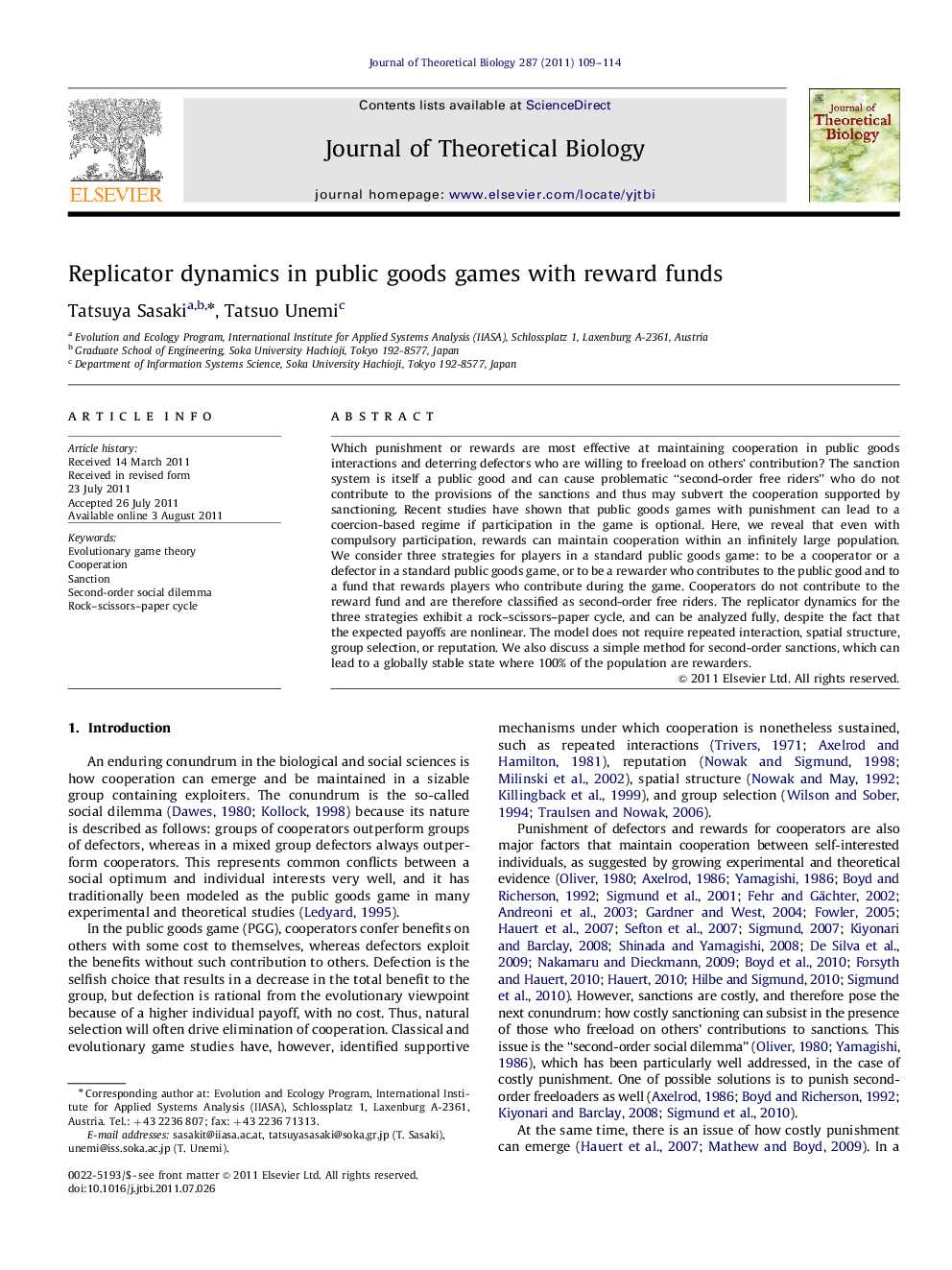| Article ID | Journal | Published Year | Pages | File Type |
|---|---|---|---|---|
| 4496932 | Journal of Theoretical Biology | 2011 | 6 Pages |
Which punishment or rewards are most effective at maintaining cooperation in public goods interactions and deterring defectors who are willing to freeload on others' contribution? The sanction system is itself a public good and can cause problematic “second-order free riders” who do not contribute to the provisions of the sanctions and thus may subvert the cooperation supported by sanctioning. Recent studies have shown that public goods games with punishment can lead to a coercion-based regime if participation in the game is optional. Here, we reveal that even with compulsory participation, rewards can maintain cooperation within an infinitely large population. We consider three strategies for players in a standard public goods game: to be a cooperator or a defector in a standard public goods game, or to be a rewarder who contributes to the public good and to a fund that rewards players who contribute during the game. Cooperators do not contribute to the reward fund and are therefore classified as second-order free riders. The replicator dynamics for the three strategies exhibit a rock–scissors–paper cycle, and can be analyzed fully, despite the fact that the expected payoffs are nonlinear. The model does not require repeated interaction, spatial structure, group selection, or reputation. We also discuss a simple method for second-order sanctions, which can lead to a globally stable state where 100% of the population are rewarders.
► We investigate how a reward fund affects the evolution of cooperation. ► The reward fund can evolve in the presence of second-order free riders. ► Rewarders, second-, and first-order free riders can form a rock–scissors–paper cycle. ► The replicator dynamics can fully be analyzed despite the nonlinear payoff functions. ► The model does not require iterated game, reputation, or optional participation.
